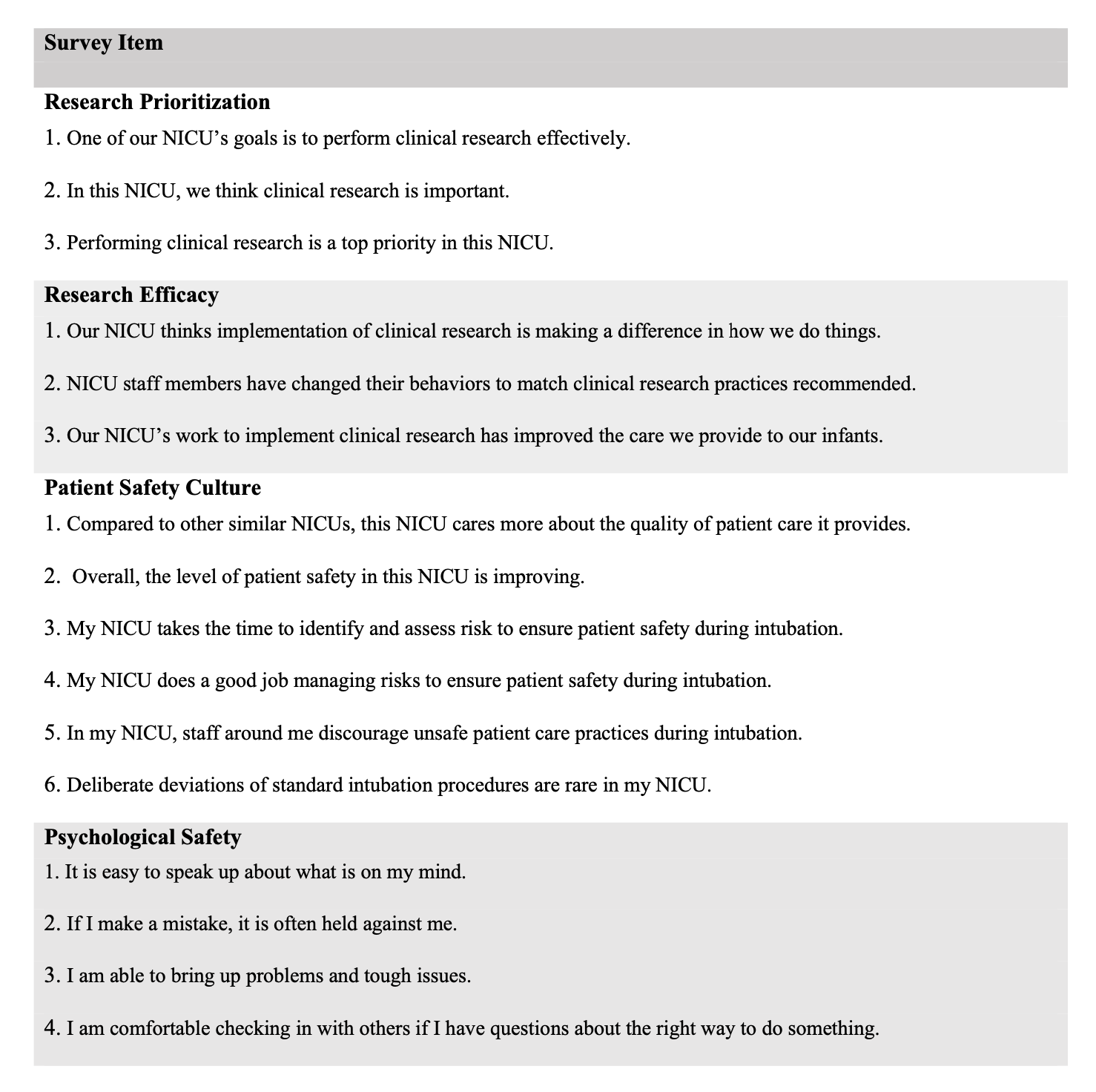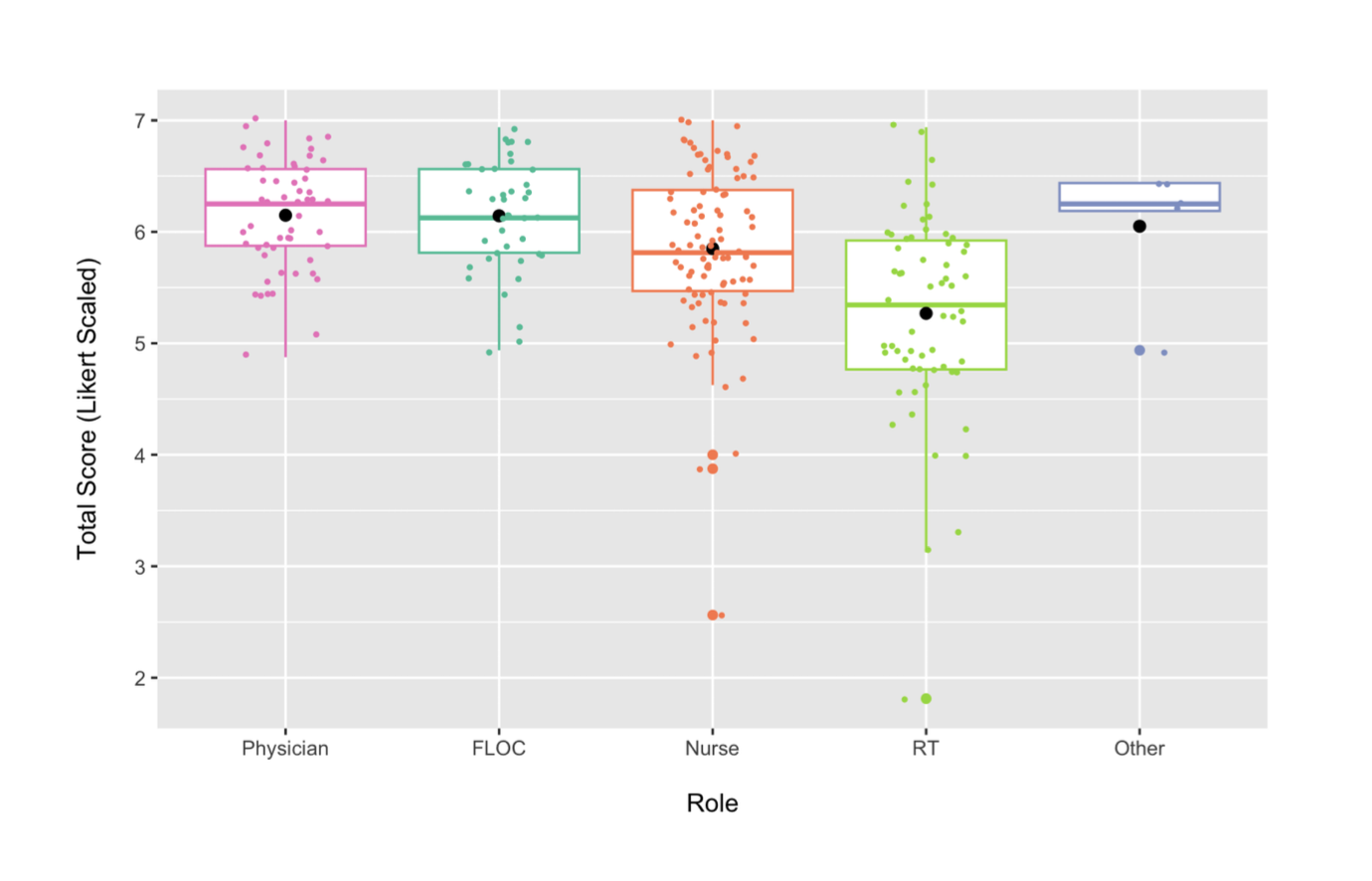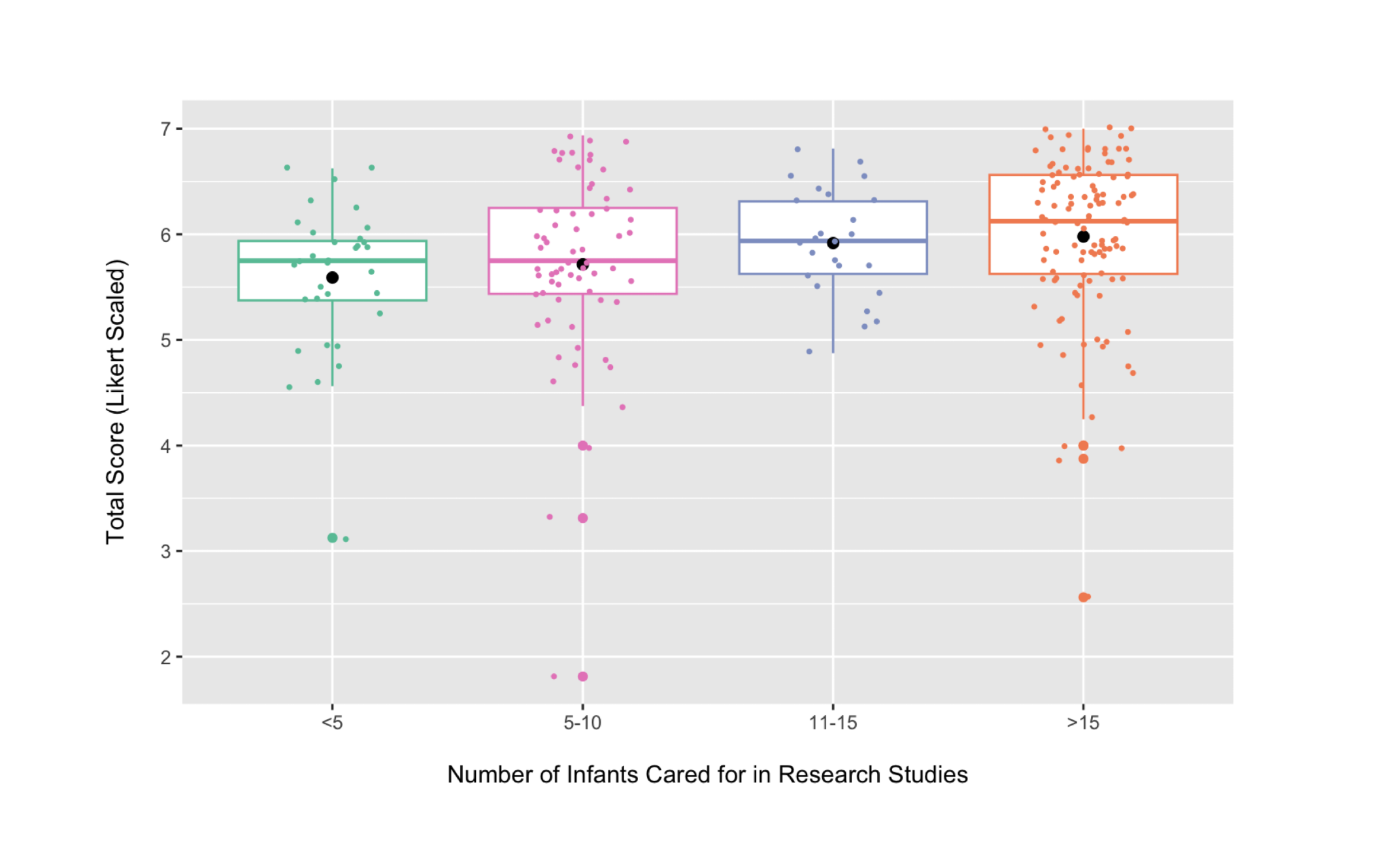Neonatology
Session: Neonatal General 1: NICU Care
55 - Organizational Culture of Clinical Research in the NICU
Friday, May 3, 2024
5:15 PM - 7:15 PM ET
Poster Number: 55
Publication Number: 55.267
Publication Number: 55.267
- EL
Emily A. Lang, MD (she/her/hers)
Resident
Childrens Hospital of Philadelphia
Philadelphia, Pennsylvania, United States
Presenting Author(s)
Background: Research provides evidence for innovations in medical management. However, support for clinical trials within patient care settings varies. The organizational culture (beliefs, perceptions, and values in an organization) surrounding clinical research may influence the success of research studies and, in turn, impact advancements in medical practice.
Objective: We sought to 1) create a psychometrically sound measure of the organizational culture of clinical research, and 2) explore factors affecting this culture.
Design/Methods: We adapted existing scales to measure clinical research’s prioritization, efficacy, and safety, as well as individuals' psychological safety to create a survey. We administered the survey to front-line ordering clinicians [FLOCs: nurse practitioners and physician assistants], nurses, physicians, and respiratory therapists [RTs]) in two NICUs prior to their involvement in a randomized controlled trial regarding intubation practices in the NICU. Survey psychometrics of reliability and validity were examined using Cronbach’s alpha and iterative factor analyses. Statistical comparisons of means explored factors affecting measure scores. Higher scores (on Likert scale) indicate a more favorable organizational culture of clinical research.
Results: Survey respondents (n=259) included nurses (37%), RTs (24%), physicians (21%), FLOCs (16%), and unspecified clinicians (2%). Participants were mostly female (80%) and between age 25-45 (74%). Most respondents had been in their current roles for >1 year (87%) and had cared for infants enrolled in prior research studies (79%). Psychometric assessments revealed a reliable (alpha=0.92) and valid measure of clinical research’s organizational culture with four factors: research prioritization culture, research efficacy, patient safety culture, and psychological safety (Figure 1). Measure scores were significantly influenced by role and exposure to infants enrolled in prior research studies: RTs had less positive perceptions of the organizational culture surrounding clinical research than physicians, FLOCs, and nurses (ꭓ2=46.1, p< 0.05, Figure 2), while clinicians exposed to the most infants in prior studies had more favorable impressions of clinical research culture than those exposed to the fewest (ꭓ2=46.1, p< 0.05, Figure 3).
Conclusion(s): Respiratory therapists may represent a target group for interventions aimed at improving the culture surrounding clinical research. Exposure to patients involved in clinical research increases the culture of support for involvement in and implementation of research protocols.



